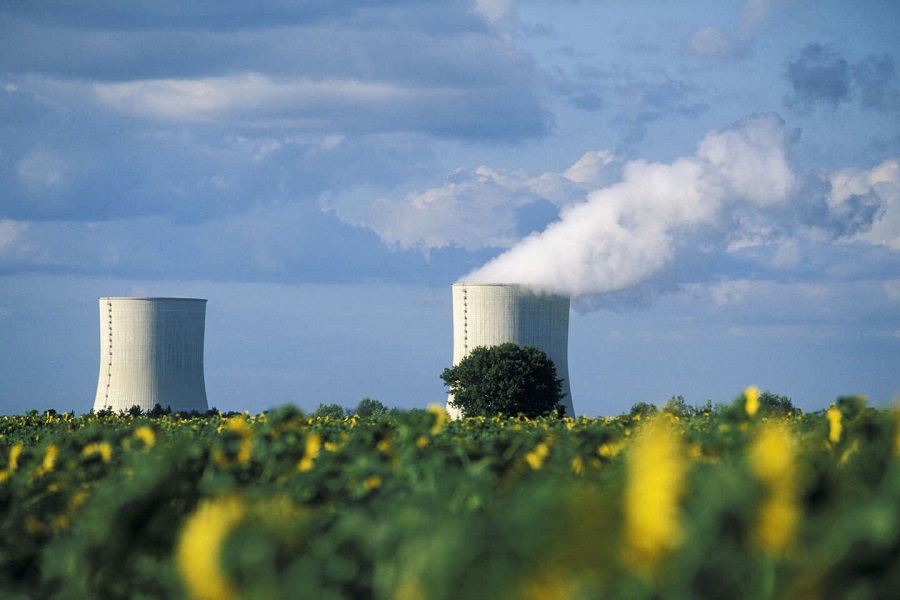11 Dec 2024

Tired Earth
By The Editorial Board

Countries participating in Tuesday’s alliance meeting – Bulgaria, Croatia, Czechia, Finland, Hungary, Poland, Romania, Slovakia, Slovenia, Sweden and France – called for a root-and-branch review of the EU’s climate and energy policy framework.
In their view, the EU must fully “fully acknowledge the contribution of all fossil-free energy sources” to the bloc’s objective of halving emissions by 2030 and reaching climate neutrality by mid-century.
“Nuclear power is indisputably a sustainable and equally valid technology to achieve these objectives for member states that opted to resort to its use,” the joint declaration says.
At present, only renewable energies and energy efficiency have been subject to binding quantified targets to meet the EU’s climate change objectives.
“However, we must collectively recognise that these two dimensions are not enough to encompass the diversity of solutions and industrial capabilities across the member states,” the joint declaration adds, saying nuclear power must be considered as well.
“Looking forward to the future and our collective 2040 and 2050 climate-energy targets, we strongly encourage the European Commission to propose a regulatory architecture that facilitates for member states to achieve carbon neutrality by encompassing our energy diversity,” it adds.
At the instigation of France, there is growing momentum among EU countries to revise the EU’s climate and energy targets and adopt a broader approach focused on decarbonisation instead of renewables only.
When EU legislators agreed in March to raise the EU’s renewable energy target for 2030, France and its allies already succeeded in lowering the EU target on renewable hydrogen production for countries that already have a low-carbon electricity mix.
Similarly, the Nuclear Alliance is now calling for the EU to adopt a target for low-carbon energy, not just renewables.
“If we want to collectively achieve the 2030 targets and go further with the 2040 targets, we probably need to ask ourselves how these targets are structured,” said an official from the office of French Energy Transition Minister Agnès Pannier-Runacher.
“We are setting targets in terms of the share of renewable energy in final energy consumption, and we have now reached an impasse,” the official said. “If we want to go further in renewable energies, we are going to hit the low-carbon base of certain member states,” they continued.
“So we need to turn the tables and stop thinking about elaborating a fourth renewable directive [RED IV] after RED III but perhaps the first low-carbon directive.”
Paradigm shift
According to the countries taking part in the Nuclear Alliance, this paradigm shift would require changing the objectives set out in the National Energy and Climate Plans (NECPs) that EU member states must complete by June 2024.
France’s draft plan, which was submitted to the European Commission last month, already refers to a “decarbonised” energy target instead of a renewables target, as requested by the EU’s renewable energy directive.
Paris has since stuck to its guns and refused to adopt a renewable energy target for 2030, dismissing the Commission’s call to abide by the EU’s renewables directive.
At a press conference on Tuesday (19 December), EU Energy Commissioner Kadri Simson declined Euractiv’s invitation to comment specifically on France’s proposal for a “low-carbon” energy objective.
However, she acknowledged the importance of nuclear energy in the context of the EU’s 2040 climate targets, which are currently under discussion, with a Commission proposal expected to be tabled in February.
For her part, Spanish Energy Minister Teresa Ribera, who chaired Tuesday’s Energy Council meeting, said that only renewables could be developed in time to meet the EU’s 2030 climate targets.
Beyond that, however, she left the door open to other options.
Read the nuclear alliance’s joint declaration here.
Source : euractiv.com
Comment